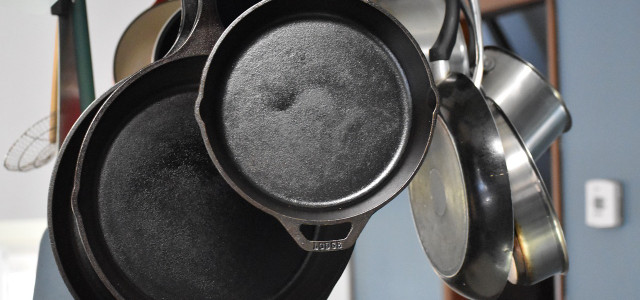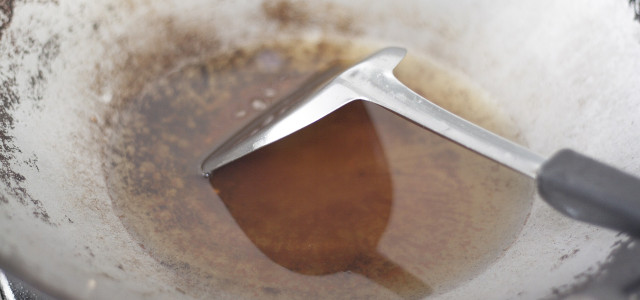Wondering what the hype is with cast iron cookware? Learn more about the benefits of owning a cast iron skillet, and how to use it to elevate your home cooked dishes.
Cast iron skillets have many benefits, which makes them a great investment for anyone who is looking to do more cooking at home. Not only can they be used for sautéing, pan-frying, searing, braising, broiling, and roasting — they can also be used for baking. Plus, the more you cook with your cast iron skillet, the more seasoned it gets, which gives better flavor to your food. Let’s have a closer look at the benefits of a cast iron skillet compared to other kinds of pans.
Cast Iron Skillet: Benefits
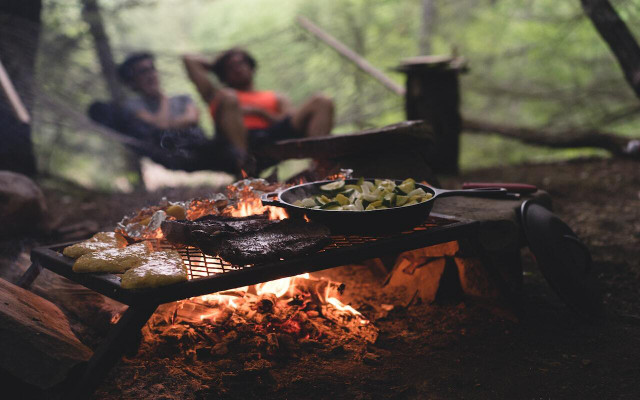


(Foto: CC0 / Unsplash / Myles Tan)
There are several reasons you may want to invest in some cast iron cookware. They are known for being durable, versatile, and environmentally friendly to boot. Though the benefits of cast iron skillets don’t end there – other positive characteristics include:
- Non-Stick: when seasoned properly you can cook in cast iron without the fear of things getting stuck onto the pan. This means you can use less oil when cooking, which also results in healthier meals. Read the tips below about seasoning a cast iron skillet with oil.
- Chemical-Free: cast iron cookware is created by melting iron and steel together, and doesn’t have any harmful chemical coatings, like PTFE, the way other non-stick cookware does.
- Long Lifespan: when cared for properly, cast iron skillets can last ages —and can even be passed down generations. This means it is one of the most environmentally friendly cookware options.
- Adds Iron: due to what a cast iron skillet is made of, it can benefit your food with the addition of iron.
- Multi-Purpose: another benefit of cast iron skillets is that you can use them on the stovetop and seamlessly transfer them into the oven. They are also great for cooking over a campfire when camping.
- Easy to Clean: if you’re using it every day, you don’t even need to use dish soap to clean your cast iron skillet. You simply need to rinse the skillet to remove any leftover food.
- Heat Retention: one of the biggest benefits of cast iron skillets is that they have great heat distribution and retention when properly heated. Proper heating techniques include heating it in the oven, or over a fire – which is why it’s a popular camping tool. Over the flame of a gas stove, it could happen that the skillet only gets really hot right above the flames. That’s just something to calculate in when using a cast iron skillet.
- Inexpensive: most homeware or kitchen stores sell cast iron skillets, and they aren’t very expensive. When cared for properly, you won’t need to buy a new one.
Cast Iron Skillet Drawbacks
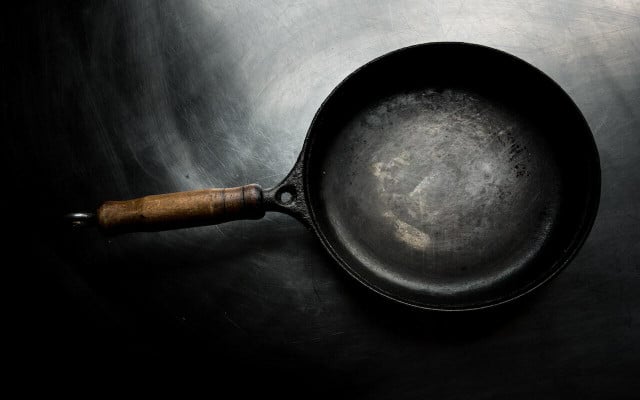


(Foto: CC0 / Unsplash / Helinton Fantin)
Cast iron is beloved by professional and home chefs alike, however there are a few things to keep in mind before purchasing a cast iron skillet.
- Due to how thick the cookware is, cast iron takes longer to heat up when compared to conventional pots and pans. This means that it requires more energy to bring it up to cooking temperature.
- When using on a stove top, heat will be patchy – and undersized burners will be ineffective when trying to heat a cast iron skillet.
- Cast iron is susceptible to rust if not seasoned properly. If you do end up with rust, you’ll need to use a vinegar water solution to remove the rust, and then reseason the whole pan.
- It can be very heavy, especially if you’re used to cooking with stainless steel pots and pans.
- It shouldn’t be used to cook food for children, since they are more susceptible to iron toxicity.
Cast Iron Cookware Tips
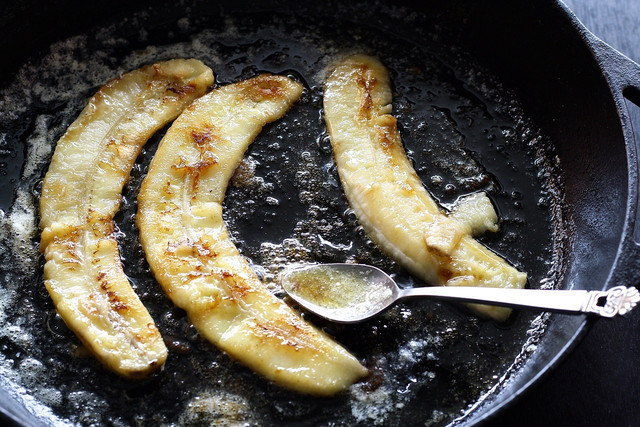


(Foto: CC0 / Pixabay / ponce_photography)
If the cast iron skillet benefits have prompted you to give it a try, now’s the time to go out and purchase one – or maybe an older relative has one they can pass down to you. When shopping for a pan, check out secondhand shops, or use tools like online classifieds. If you do need to purchase a new one, look for ones that are manufactured in the US in order to keep transport routes short.
In order to maintain a successful relationship with your cast iron skillet, you should do the following:
- Season it straightaway: modern versions often come pre-seasoned, but a cast iron skillet can always benefit from more seasoning. To do this, heat the cast iron skillet until its smoking hot, then rub a bit of oil into it and let cool. Do this a few times for best results.
- Clean it after every use: after cooking, it’s necessary to rinse the pan to remove any food that could potentially harden and get caked onto the pan. For really stubborn messes, try using a little bit of soap and water to clean the skillet.
- Re-season: after cleaning it, add the cast iron skillet back to the stove and heat it until the water has dried. Then add a half teaspoon of a neutral oil and rub it around the skillet using a paper towel alternative (depending on what you are using, be careful with the heat) and continue to heat it until it starts to smoke. Rub the oil around again, and let fully cool.
- Use it often: the more you cook with cast iron, the better it gets. This is because the seasoning is layered and adds a better depth of flavor to your foods.
- Don’t let it stay wet: when you mix water and iron, you end up with rust, so in order to avoid any rust spots, always ensure your cast iron skillet is fully dried before storing.
- Store in a dry and cool location: exposure to moisture of any kind can be detrimental to cast iron cookware. An oven is a great place to store it if you’re running out of room in your cupboards – just remember to remove it before heating your oven. You can also hang them from the wall, or stack them on top of one another – provided you layer a soft and absorbent material in between the cast iron skillets.
Looking for inspiration for cooking with your cast iron skillet? Check out the following recipes:
- Apple Skillet Cake
- Spinach and Feta Pizza
- Vegan Pancakes With Egg Substitutes
- Vegan Black Bean Burgers
- Homemade Southern Cornbread
Read on:
- Can You Fry With Olive Oil? What to Watch Out For
- The Best Vegan Substitutes for Butter
- Wild Camping: A Beginner’s Guide to Free Camping in the US & Canada
Do you like this post?






